Still Alice: a story about early-onset Alzheimer’s Disease
Neuroscientist Lisa Genova tells the story of Alice and her early-onset Alzheimer’s disease. How much do we know about this condition?
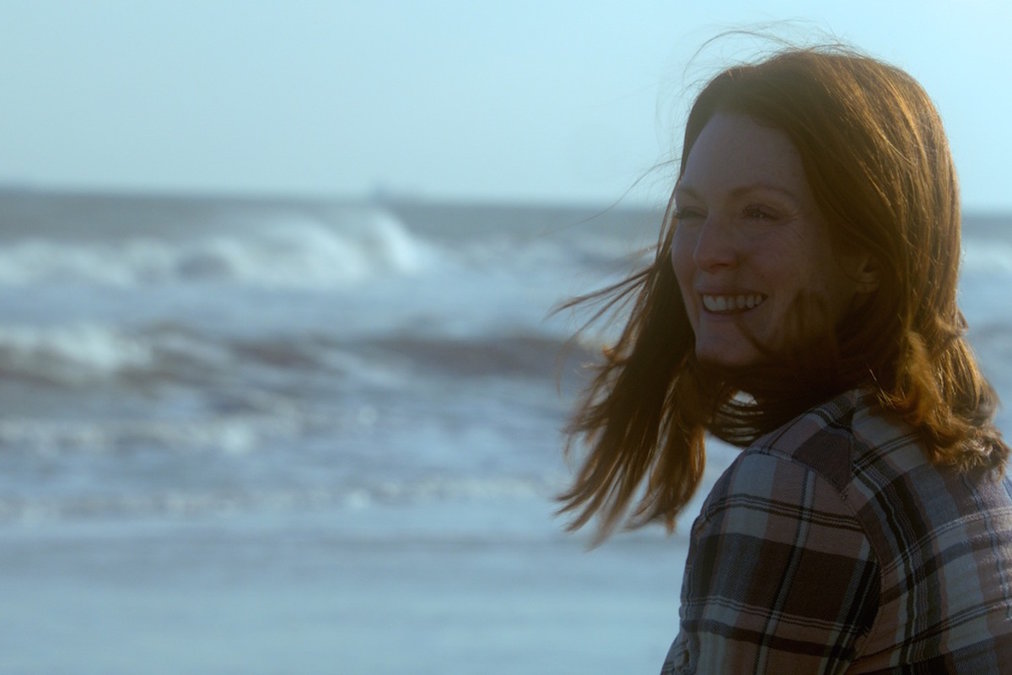
Images sourced from Newstateman and Howard or Film
“What if you were to lose every memory you ever had?”
in “Still Alice”, by Lisa Genova
Julianne Moore’s Oscar and Bafta winning performance couldn’t have been more powerful. She completely transformed herself into a renowned linguistics professor at Columbia University who faces an unexpected diagnosis. When she visits a neurologist, she is diagnosed with early-onset Alzheimer’s disease – a very rare genetic condition – that changes her life completely. She is only 50. She finds herself forgetting words during her lectures, getting lost while jogging in her own neighbourhood and having trouble remembering people and appointments. Along with her family, Alice struggles with the prospect of this diagnosis, but remains strong in the face of adversity as she tries to tie up loose ends while she still can. She learns how to seize every moment and to make living worthwhile.
“Still Alice” was adapted for the big screen by director Richard Glatzer, who also suffers from a progressive neurodegenerative disease – ALS (Amyotrophic Lateral Sclerosis). This movie inspired us to raise awareness of all degenerative neurological ailments like early-onset Alzheimer’s disease. This story is particularly touching because it shows us the harrowing challenge faced by both the patient and their family as her condition slowly progresses.
Watching Alice lose her memories is seeing her stumble down a path towards deterioration that is terrifyingly real. However, this story contains a lot of misconceptions about Alzheimer’s in general. What can be done to better understand Alzheimer’s disease in all its forms? The simple answer is bettering our understanding by talking about it openly and informing ourselves. Those really are the best ways to understand and to be more aware of the condition.
What is Alzheimer’s disease?
“And I have no control over which yesterdays I keep and which ones get deleted. This disease will not be bargained with.”
in “Still Alice”, by Lisa Genova

The first thing we must bear in mind is that Alzheimer’s disease isn’t a normal part of aging. That’s how Alzheimer’s differs from Dementia. However, it is fair to say that Alzheimer’s disease is one of the most common forms of Dementia (70% of all cases). It causes global cognitive deterioration, behavioural disturbances and diffused cortical atrophy associated with neuronal degeneration. Although its prevalence is much higher in the senior population, it is also considered the most frequent form of dementia among under-65s. However, the 65 years mark is merely based on sociological aspects, and it has no biological significance in clinical practice.
What Alice faces is early-onset Alzheimer’s, a form of the disease that is far rarer than common Alzheimer’s disease, and often affects people in their prime, regardless of how mentally active they are. This is because early-onset Alzheimer’s is a genetically conditioned disease, with few environmental factors.
An Alzheimer’s Disease diagnosis
“It’s so uncomfortable because most people don’t want to think about what it would feel like to have Alzheimer’s. It’s kind of terrifying.”
in “Still Alice”, by Lisa Genova
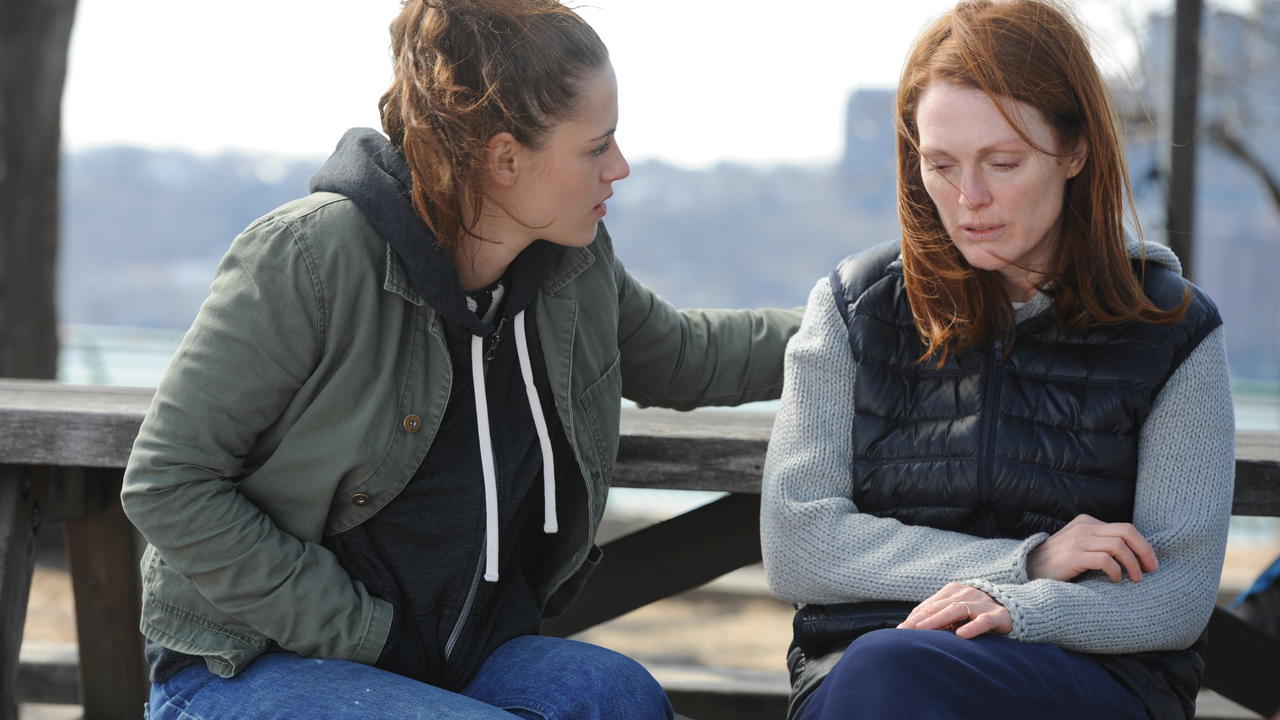
An early and accurate medical diagnosis is crucial as it can give you or your loved one time to plan for the future. Generally, medication can help people in the earlier stages of Alzheimer’s control some of their symptoms for a while.
There are three types of Alzheimer’s:
Early-onset Alzheimer’s:
It can affect people in their 40s or 50s. It’s rare, so only up to 5% of all people with Alzheimer’s are affected at such a young age. The early-onset form also appears to be linked with a defect in a specific part of a person’s DNA: chromosome 14.
Late-onset Alzheimer’s:
It can affect people aged 65 and older. It may or may not have a genetic cause. So far, researchers haven’t found a particular gene that causes it.
Familial Alzheimer’s
“Familial Alzheimer’s” is when doctors know for sure it’s linked to genes. In families that are affected, members of at least two generations have had the disease. This form makes up less than 1% of all cases of Alzheimer’s and most people who have early-onset Alzheimer’s fall into this category.
What’s the difference between early-onset and late-onset Alzheimer’s Disease?
“Everything she did and loved, everything she was, required language.”
in “Still Alice”, by Lisa Genova
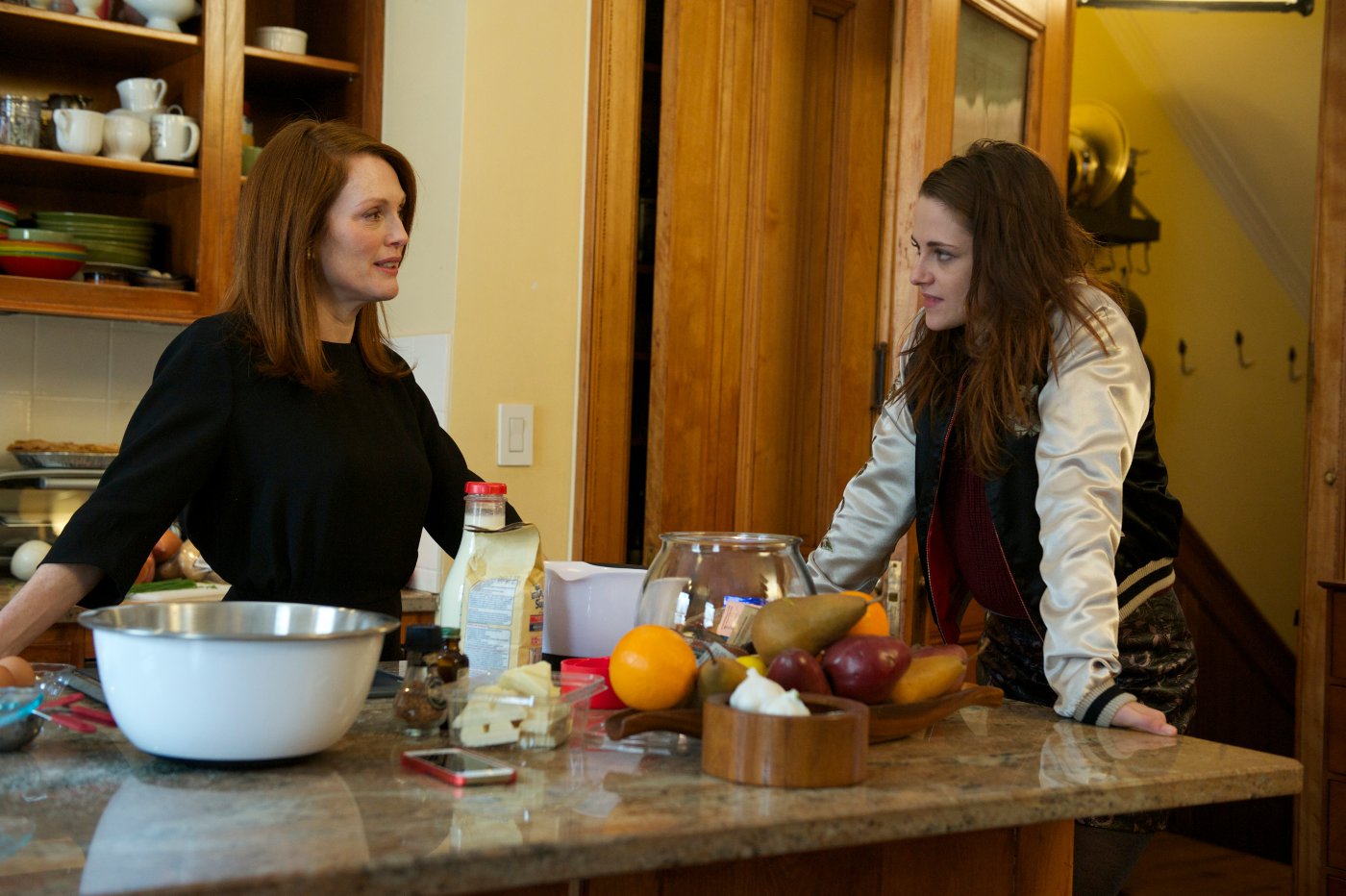
Early-onset Alzheimer’s disease, which affects patients younger than 65, has frequently been described as having different symptoms to late-onset Alzheimer’s disease.
This means that patients with early-onset Alzheimer’s disease have more prominent focal cortical symptoms such as aphasia (loss of language), apraxia (loss of semantic memory) and agnosia (loss of the ability to recognize objects and people) than those with late-onset Alzheimer’s disease. Therefore, younger patients have a major impairment in praxis (the act of engaging, applying, exercising, realizing, or practicing ideas) and a tendency for a great impairment in cognitive functions, while patients with late-onset forms are more likely to lose their visual memory and orientation.
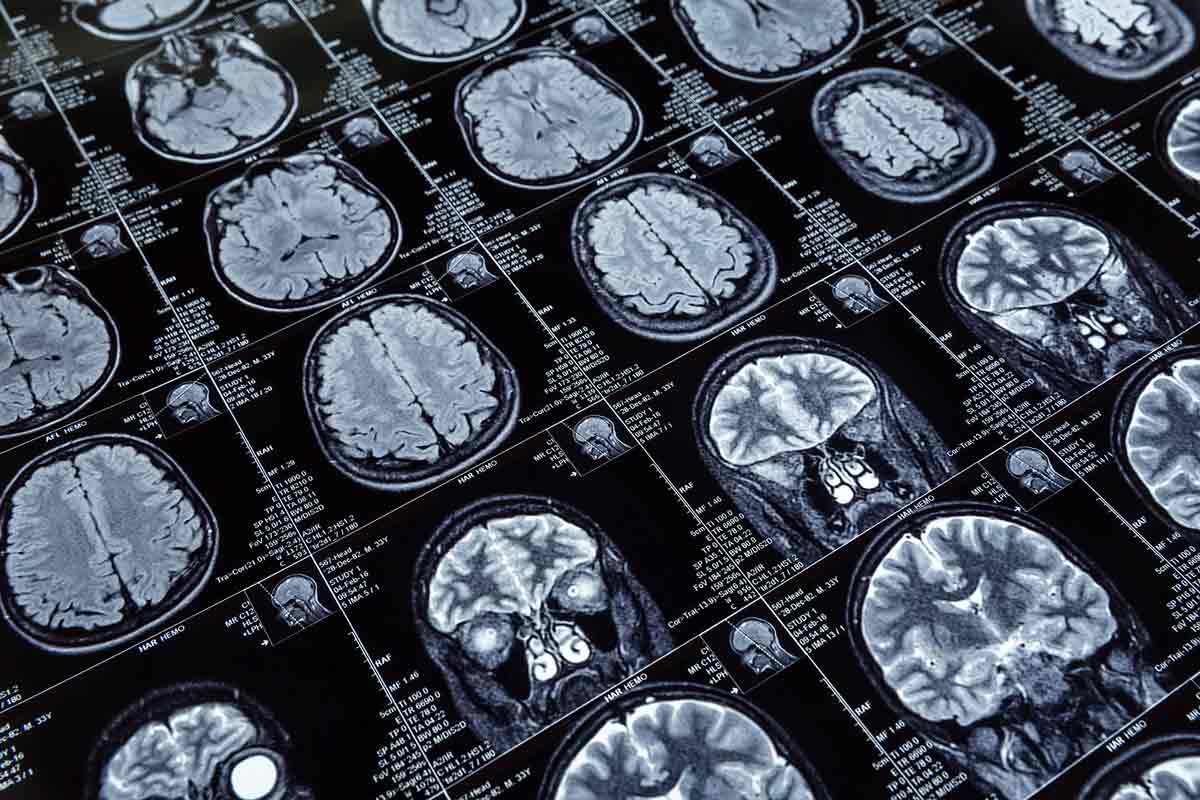
The 7 stages of Alzheimer’s Disease
“In examining disease, we gain wisdom about anatomy and physiology and biology. In examining the person with disease, we gain wisdom about life”.
in Still Alice, by Lisa Genova.
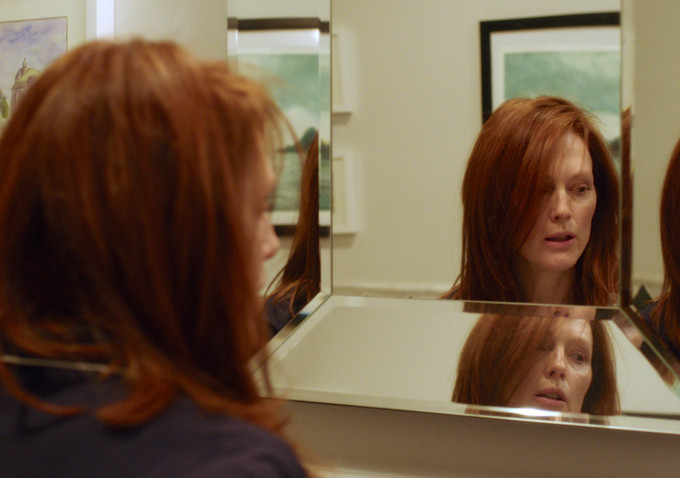
The various stages of Alzheimer’s disease don’t always fall into neat boxes, and the symptoms might also vary. However, here’s a simple, helpful guide that could help you care for a friend or relative who has been diagnosed with Alzheimer’s:
Stage 1: Normal outward behaviour
In the first stage, your friend or relative won’t show any noticeable symptoms and only a brain scan could reveal the presence of Alzheimer’s disease.
Stage 2: Very mild changes
At this stage, the signs will barely be noticeable – there will be no effects on their ability to work or live independently, but they could forget a word or misplace objects.
Stage 3: Mild decline
At this stage you may notice something is not quite right. Symptoms could be:
- Forgetting something he/she just read;
- Asking the same question over and over;
- Having more and more trouble making plans or organizing things;
- Not remembering names when meeting new people.
Stage 4: Moderate decline
At this stage, more issues related to the ability to reason and memory loss appear, such as:
- Forgetting details about himself/herself;
- Having trouble putting the right date and amount on a check;
- Forgetting what month or season it is;
- Having trouble cooking meals or even ordering from a menu.
Stage 5: Moderately severe decline
This is when the symptoms of severe decline start to appear:
- Starting to lose track of where he/she is and what time it is;
- Having trouble remembering his/her address, phone number, or where he/she went to school;
- Getting confused about what kind of clothes to wear for the day or season.
Stage 6: Severe decline
At this point, your friend or loved one will be highly disorientated, and will have symptoms such as:
- Recognizing faces but forgetting names;
- Mistaking a person for someone else;
- Appearance of delusions, for example, wanting to go to work when they no longer have a job.
Stage 7: Very severe decline
This is the final stage of this degenerative brain disease. All basic mental and physical abilities the person used to have are blocked, such as:
- Sitting and walking;
- Going to the bathroom;
- Eating and drinking (they can no longer tell when they’re thirsty);
In many of the early stages of Alzheimer’s disease, symptoms can be controlled by medication and with support of friends or family members. Sometimes, the patients themselves find ways and tricks to remember facts and appointments. As a family member or friend, you can also help your loved ones remember facts and details and invite them to use their imagination. They might still be able to tell a story and pass their wisdom down to younger generations. And you can still connect with them through their senses, for example, we know many people with Alzheimer’s love hearing music, being read to, or looking through old photos. They should be surrounded by everything that makes them feel connected to who they used to be so they can avoid feeling disoriented as much as possible.
Sources:
- Still Alice, by Lisa Genova
- Types of Alzheimer’s Disease, WebMD Medical Reference,Reviewed by Melinda Ratini
- Early- and late-onset Alzheimer disease: Are they the same entity?, by P. Tellechea, N. Pujol, P. Esteve-Belloch, B. Echeveste, M.R. García-Eulate, J. Arbizu, M. Riverol, Spanish Society of Neurology
- Differences between Early and Late-Onset Alzheimer’s Disease in Neuropsychological Tests, Francisca Sá,Paula Pinto, Catarina Cunha, Raquel Lemos, Liliana Letra, Mário Simões, and Isabel Santana, from Dementia clinic in the University Hospital of Coimbra and a Memory Clinic, in Front Neurol. 2012; 3: 81.
- 7 Stages of Alzheimer’s Disease, WebMD Medical Reference,WebMD Medical Reference Reviewed by Neil Lava

 USA
USA